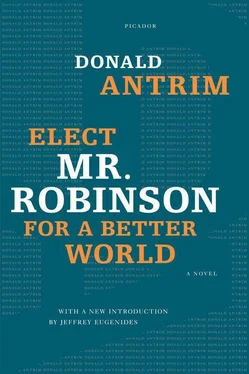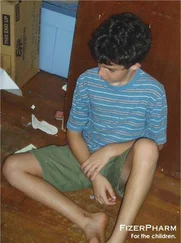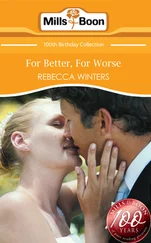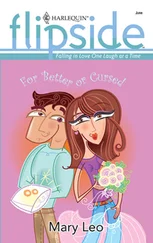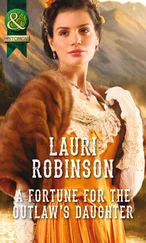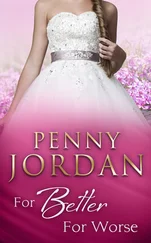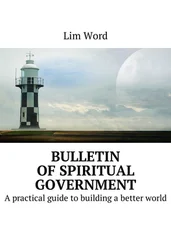“Why, Pete Robinson, is that you?”
“Oh, Rita, hi.” Time to approach the checkout desk. I watched Rita raise her eyes to take in my face and arms splotchy with leaf and scum. I’d sustained scratches on my knees and ankles; dried blood discolored socks and shoes. What a mess. I felt that hot-under-the-collar tingle that accompanies lying to an authority figure, when I said, “Say there, Rita, I just had a little accident with a library book.”
“Oh dear.”
“Yeah, well, here it is,” removing the destroyed tome from the knapsack and placing it gently on the counter. She stared at its sad dust jacket swaddling bent boards and unglued, water-bloated paper shreds. The spine was collapsed, ink was running — it was pathetic. I went on, “I was doing my morning mowing and hedge trimming, you know. I honestly have no idea how the book managed to get into those weeds.”
“You defaced this with a hedge trimmer?”
“Mower, actually. Yes, it was, I believe, I’m sure in fact, the mower.”
She gave me a look. “Hmn.”
“A riding mower. That’s why the damage is so bad. Those things have monster blades.”
“Indeed.”
Now other people filed into the library, mothers bringing their kids to Story Time. They looked me over and stopped. There was Sheila Moody with her son, Steven, a sensitive boy who’d attended kindergarten two years before. And there was little Susy Jordan, cradling in her baby-fat arms the same ragged plastic doll she’d toted through first grade. What a sweetheart. I called to Susy’s mother, “Good morning, Jenny.” And I said, “Hello, Steven. Hello, Susy. Hey, it’s story time, isn’t it?”
“Answer the man,” Jenny Jordan instructed her daughter.
“Yes.”
“And what is today’s story?”
“Don’t know.”
“Today we’ve scheduled The Legend of Pocahontas, ” Rita Henderson said.
“Ah. Our national lore. That’s fine.”
Rita told the mothers and children, “Mr. Robinson here has been having lawn troubles.” Well, you could feel their skepticism. I grinned deliberately stupidly and exclaimed, “Ran over a library book. Riding mower. High gear. Couldn’t stop. Sticks and rocks flying.” Rita’s apparent acceptance of my “lawn mower” con offered me comfort and strength; it served to integrate me with the larger community represented by these family groups. I milked the role of benign neighborhood duffer by boasting to the gathered throng, “I guess I’m not much good with lawn tools. Say, Rita, you wouldn’t happen to have some hot coffee, would you?”
“We’ve got coffee and doughnuts in back. I’ll bring some out. Don’t you worry about this book. Accidents do happen. You’re lucky you didn’t lose a hand or a foot. Why don’t you sit down and unwind a bit.”
“Thanks, I’d like that.” I watched moms and kids file into the Juvenile section. Juvenile is my favorite of all the special collections in the library. Along with, maybe, History. The Juvenile section is decorated with colorful, messy finger paintings and a collection of kids’ Play-Doh statues of anthropomorphic beings, marbles stuck as eyes in their heads. Juvenile has its very own card catalogue and semicircular seating unit, one of those comfortable wraparound sofa environments, scaled down to youngster size and richly pillowed in stuffed animals: polar bears, kittens, multicolored birds, lions and tigers, an elephant, a bison. Beholding those kids hopping, now, into that playtime bestiary — it filled me with joy. I headed right on over and reclined among them, little Susy on my right, Steven and Brad to my left. Susy grabbed a python. Steven cuddled a bear. I got the bison. Other kids completed the circle, a boy named David and his redheaded infant brother, Tim; a puffy girl named Jane who looked like she’d been crying recently. Most were preschoolers. They all clutched animals and stared my way with wide gazes. One, an auburn-haired girl of, I guess, five or six, dressed in a floral-print jumper and saddle oxfords that wore friendly smiling schnauzers’ faces sewn onto their uppers, said, “Hi, mister.”
“Hi.”
“Are you a monster?”
“Sarah!” her mother scolded from a folding chair beside the World Books. I said to the mother, “It’s okay,” and I asked Sarah, “Do I look like a monster?”
“Yes.”
“I’m sorry,” Sarah’s mother said to me. To her daughter, in treacly, charm school cadences, she said, “Do not be a rude child.”
I noticed Jenny Jordan blanching at the sound of this fierce other mom. I winked at Jenny (it was good to have an ally), then explained, patiently, “Sarah, there are two kinds of monsters. The real kind are scary and evil, and you always want to watch out for that kind of monster. Then there’s another kind that’s not a monster at all, just a person having a rough day.”
“Like my dad?” Sarah asked. All I could do was chuckle, “Heh heh. Kids.”
Luckily Rita arrived with refreshments. “How do you take your coffee, Mr. Robinson?”
“Black.” I flipped the bison on its back and balanced my Styrofoam cup on its synthetic-hair tummy. Rita addressed the gathering, “Mr. Robinson is married to a mermaid, isn’t that nice?”
“Oh,” cried mothers.
“Well,” I said.
“Now don’t you be modest, Mr. Robinson. Meredith is a special person, and we’re fortunate to have her in our town.” Rita took up an oversized volume emblazoned with four-color images of Native Americans enacting ceremonial violence. She held the book up to show a black-haired female helplessly watching a bare-chested chieftain sporting a feathered headband and hoisting a rock poised to descend onto the head of a trussed and bound white man. Rita pointed out, “This is Pocahontas, the beautiful Indian maiden, and this man with the rock is her father, Powhatan, and this man here is Captain Smith, the man Pocahontas secretly loves, and here is their story. Everybody ready?”
“Ready!” chorused the kids. What a sound. I only wished Meredith could’ve been present to hear that happy racket. Meredith was probably just waking up. I pictured my wife rising sleepily from bed and walking to the bathroom for her morning shower; I saw her brown hands rotating faucet knobs for hot but not too hot; I imagined her sudsing up, and felt blessed, there in that library resounding with cries of children, blessed for this woman of beauty and intelligence, sharing my life. I might, one day, earn political glory, and that would be fine. But she was an absolute gift, not to be undervalued. Her skin. Her hair. Her voice.
Rita Henderson read, “‘Now Pocahontas was a very distinctive princess. Smart, pretty, and skilled at sports. Hers was a simple life. Forest creatures were her friends.’”
The pre-schoolers cradled their inanimate pets. I held my bison and stroked its downy ears. The image of Meredith in her shower rose up, rose up in my mind and in my heart, thrilling and pacifying me. Rita continued, “‘One day, voyagers arrived in Pocahontas’s land. Brave, strong men, sailing the ocean in ships.’”
She held up the book to show a watercolor of a fully rigged man-o-war flying the Union Jack and dancing over liquid seas. She turned the page and there was the same vessel with sails furled, anchored on a sunny topaz bay dotted with brightly painted bark canoes carrying warriors. A shoreline was partly visible: dunes, saw grass, a pine stand where seabirds might nest. It looked peaceful.
Rita went on, “‘The Explorers brought many gifts with them, including books. Soon Pocahontas learned to read and write. And not only in English. Pocahontas was fluent in Latin, Greek, and French. In those days, people knew the classics.’”
This last bit couldn’t’ve been actual storybook text. No, Rita was seizing an ad-lib opportunity to promote literacy. Well, why not? I watched little Sarah wag her head and kick her feet; her dog-faced oxford lace-ups rose and fell over the soft lip of the sofa seat. She was a cutie, Sarah. Reddish-brown hair curling neckward, round cherub cheeks, eyes the color of the painted water on which Rita’s illustrated boat sat serenely moored: blue-green heartbreaker eyes. I know it isn’t good to describe toddlers in adult sexual terms, but when you’re around children as much as I am, it’s hard not to think about them maturing. I pictured Sarah with long legs and a tan, and with wetness at the corners of her mouth, not from burping but from kissing.
Читать дальше
